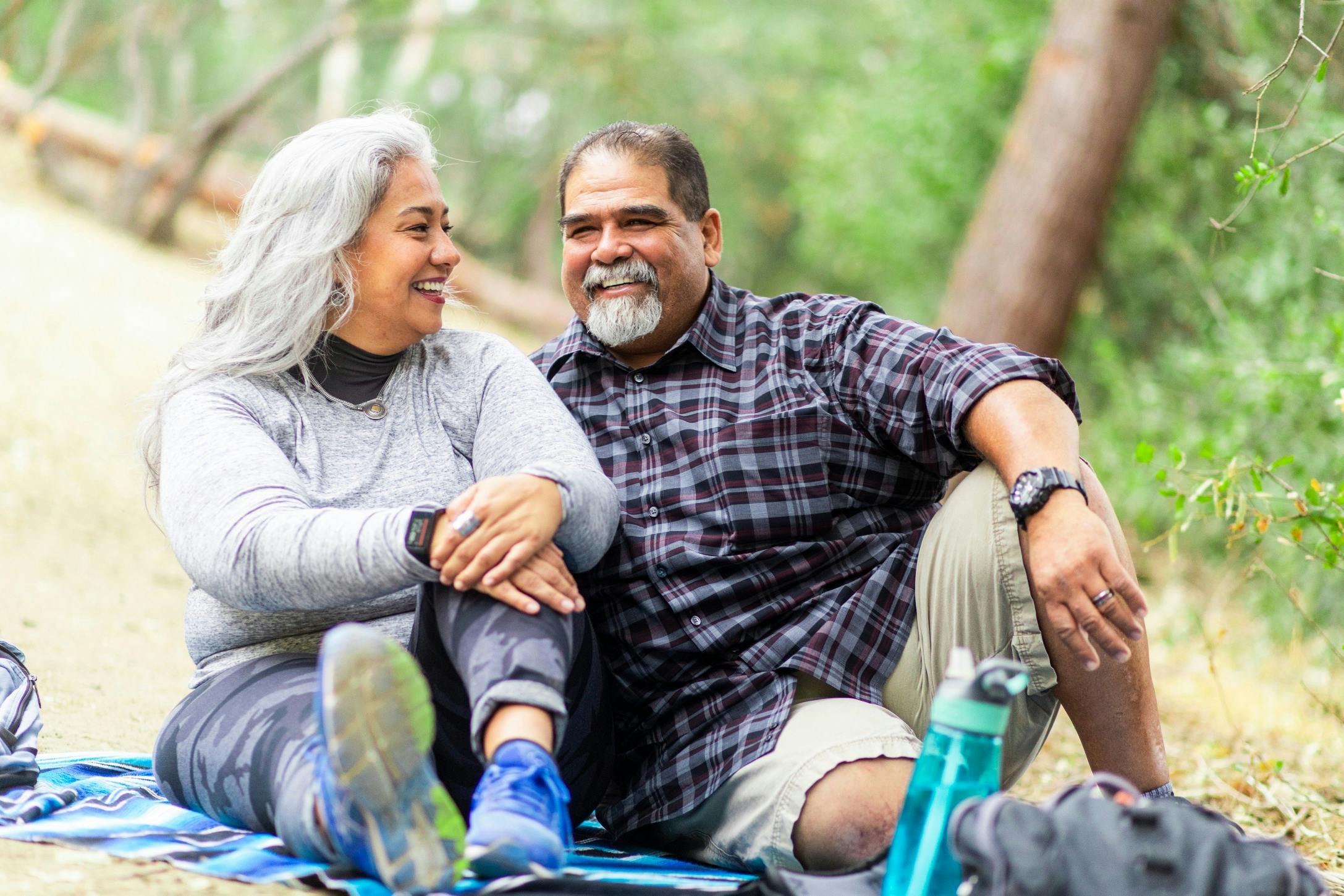The Dangers of Being Overweight
Even just being overweight could put you at a higher risk of becoming severely ill when infected with coronavirus.

The flat tire. The extra jiggle. The double chin. In addition to not being very photogenic, those extra pounds could pose a significant health risk. Thanks to COVID-19, the dangers of being even just a little overweight have become even more apparent.
The Risks of Being Overweight
Being overweight or obese are classified by the Center for Disease Control (CDC) by an individual’s body mass index (B.M.I.). B.M.I. is calculated by taking the ratio of weight verse height.
The overweight zone ranges from 25 – 29. Obesity starts with a BMI of just 30.
In more practical terms, someone who is 5-feet 9-inches, and weighs between 125 – 168 pounds, falls within the CDC’s ‘healthy range. Those heavier than 168 pounds are considered overweight. And, anyone weighing in at 203-pounds (or more) is considered obese.
The National Heart, Lung, and Blood Institute provides an easy to use B.M.I. calculator.

While some feel like excess weight is an uphill battle they'll never win, others have found that with the right support, success is possible.
In addition to being at greater risk of severe illness as a result of COVID-19, the CDC reports that excess weight puts you at exponentially higher risk of several serious health conditions, including, but not limited to, the following:
- High blood pressure
- Heart Attack
- High cholesterol
- Type 2 diabetes
- Coronary heart disease
- Fatty Liver Disease
- Stoke
- Gallbladder disease
- Kidney Disease
- Osteoarthritis
- Sleep apnea and breathing problems
- Several types of cancer
- Poor quality of life
- Clinical depression
- Joint and muscle pain
Why Does Excess Weight Make You More Susceptible to Severe Illness from COVID-19
From the outset of COVID-19, obese individuals were grouped within the high-risk category. But as the disease has progressed, new studies have lead the CDC to announce that even moderate excess weight may increase the odds of severe illness.
Initially, doctors and researchers had difficulty pinpointing the risk of being merely overweight, as excess weight can contribute to so many other health concerns. Sadly, the longer the disease sticks around, the more professionals have been able to learn.
An evaluation of 500 patients in the United Kingdom hospitalized from March to April was evaluated by Downstate Health Sciences University in Brooklyn. The retrospective study published in September 2020 was comprised of 43% obsess individuals, 30% overweight individuals, and 27% healthy weight individuals.
Taking pains to adjust for age, diabetes, and other at-risk factors, the researchers found patients who were both overweight and obese were at an increased risk of requiring mechanical assistance to breathe and were at greater risk of death.

In addition to slowing down blood circulation and hampering your immune system, excess weight in your abdomen can make it more difficult to breathe in the event you get COVID-19.
Fatty Tissue Negatively Impacts the Immune System
Generally speaking, the higher someone’s body weight, the more fatty tissue they have. As this fat builds, it inflames the body, reducing circulation and hampering the immune system.
How is this kind of assault different than other diseases? Barry M. Popkin, a professor of nutrition at the University of North Carolina at Chapel Hill, explains, “The fat tissue are inflamed for a long period of time, and it affects immune function more over time. It is a continuous insult.”
So the longer you hold on to that extra weight, the longer your immune system is hampered and the harder it is for you to recover.
“I’ve Tried Everything, But I Just Can’t Lose the Weight!”
Losing weight is hard! Losing weight during a pandemic? Well, that’s even more difficult. But the good news is, it’s not impossible. Even those who say they’ve tried everything, but just can’t lose it — can succeed.
Sure, eat a dozen donuts every day and you’re likely to pack on some pounds. But that double pounder with fries isn’t always the culprit. Too often those who struggle to lose weight are labeled as lazy or lacking willpower.
In fact, excess weight and obesity are often linked to a variety of other factors. These include, but are not limited to:
- Hormone imbalances
- Vitamin deficiencies
- Digestion issues
- Poorly optimized eating habits
- Mental strain, such as stress and depression
- Lack of sleep

Asking for help is the bravest thing you can do.
Uncover the Underlying Cause of Your Weight Gain
This is why our medically supervised weight loss program doesn’t just help you lose weight. There are numerous diets out there that can help you just get slim. Atkins. Weight Watchers. Jenny Craig. Bullet Diet.
Unfortunately, these programs don’t uncover what caused the weight gain in the first place, so you end up yo-yoing right back to your original weight. Or even worse, you gain more weight than when you started.
This is particularly a concern for patients considering bariatric surgery. Any invasive surgery puts you at risk for complications. These could include infection, poor ability to heal, negative reactions to anesthesia.
Furthermore, bariatric surgery reduces the size of your stomach. This makes it harder for you to receive the key vitamins and nutrients your body needs to support a healthy immune system.

Losing excess weight can open up a new world of opportunities to you, making it possible to do activities you weren't previously able to do — like go hiking!
The Support You Need to Succeed
It’s easy (and totally normal) to stress about your excess weight — especially during quarantine. If you had some pounds to lose before COVID-19 or if you’ve gained them since the lockdown, there’s nothing to be ashamed of.
As Courtney Rubin so accurately states in her article, ‘Don’t Be Ashamed of Those Extra Pounds,’ published in the New York Times, “Break the cycle.”
You don’t need to beat yourself up about the weight. Start making changes to help yourself succeed. For some, this may mean going on a daily walk or incorporating more greens in their daily life.
For others, finally losing the weight may require some help from a professional. Schedule a consultation (either in-person or virtually) with one of our naturopathic doctors to get started.



